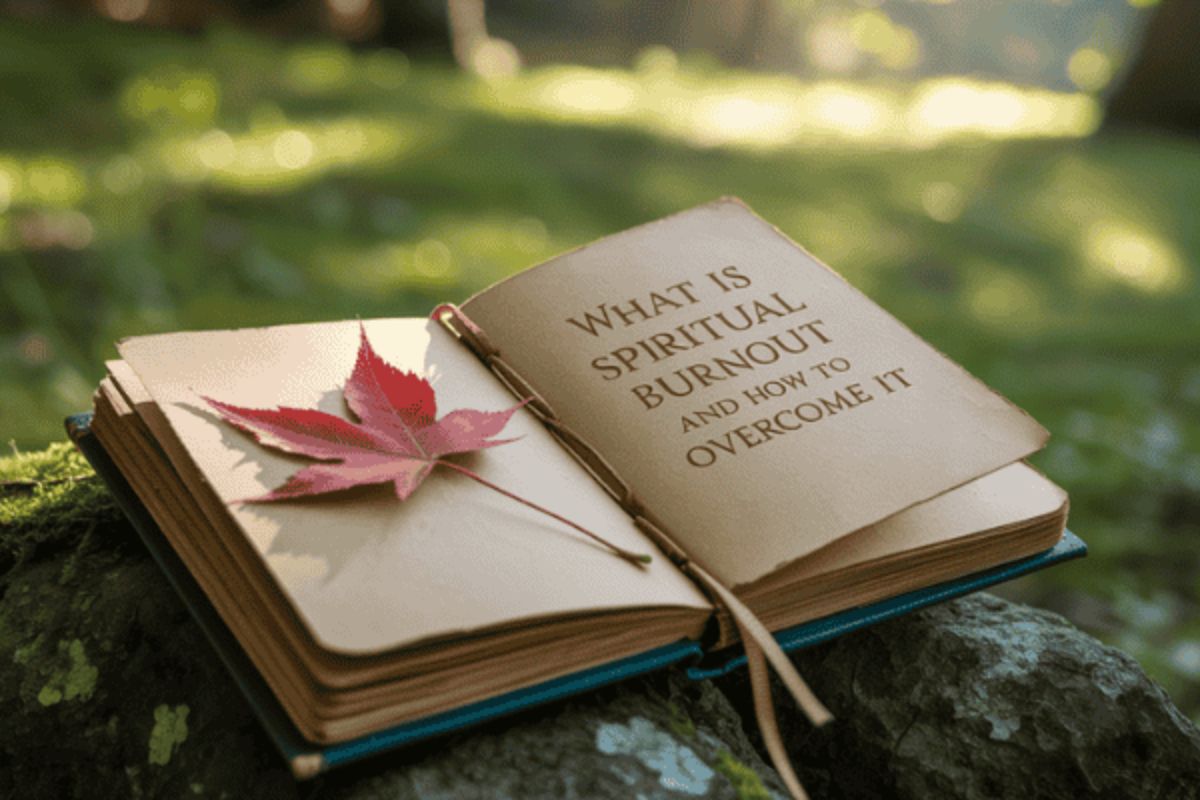These days, as people live in a fast-paced, always-connected world, more and more individuals are realizing the need to attend to their spiritual well-being as consciously as they care for their physical and mental selves. But what if spiritual practices themselves become a source of weightiness, weariness, or coercion? This is Spiritual Burnout, and it can happen to anyone, even to those with a strong passion for growth and awareness.
Learning about Spiritual Burnout, how it occurs, and how to overcome it can restore balance, peace, and a renewed passion for the path on your spiritual journey.
What Is Spiritual Burnout?
It is when your spiritual practices, beliefs, or group involvements—what was once inspiring and motivating—become draining, overwhelming, or even unfulfilling.
It typically presents itself as:
- Feeling disconnected from practices you loved
- Second-guessing your spiritual path or questioning your beliefs
- Emotional exhaustion, irritability, or cynicism towards spiritual issues
- Difficulty in meditating, praying, or sitting quietly
- Feeling obligated but not necessarily desiring to connect spiritually
As physical burnout is caused by excessive work and a lack of balance, Spiritual Burnout may be caused by spiritual practice becoming rigid, forced, or solely centered on “doing it correctly” rather than on genuine connection.
Why Does Spiritual Burnout Occur?
Perfectionism and Having High Expectations
Striving to meditate perfectly, be blissful each time, or remain forever enlightened places undue pressure on you. Sooner or later, this stress can overwhelm the raw joy of being here.
Overcommitment and Absence of Boundary
Volunteering too much, taking too many courses, or constantly seeking new teachings can overwhelm your spirit rather than nourish it.
Disregard for Emotional Healing
Sometimes spiritual disciplines keep painful feelings at bay rather than working through them. Those bottled-up feelings eventually come back to haunt you and lead to burnout.
Comparing Your Journey
With the age of social media, it’s so easy to compare your journey of spiritual growth with someone else’s and be inadequate or critical of yourself.
Becoming aware of these tendencies is the first step toward healing Spiritual Burnout.
Signs That You Might Be Experiencing Spiritual Burnout
- Lack of enthusiasm or passion for spiritual practices
- Chronic tiredness or agitation despite “doing the work”
- Guilt at having missed meditation, yoga, or group classes
- Feeling numb, resentful, or disconnected during spiritual ceremonies
- Self-doubting your worthiness or advancement on your path
If these symptoms ring true, recognize that Spiritual Burnout is more than common, and there is hope to navigate through it with love and deliberate care.
Breaking Free from Spiritual Burnout
1. Return to Simplicity
Get rid of complicated rituals and go back to the basics of why you started out on the path. Practice simple, meaningful habits such as quiet breathing, walking outside, or brief moments of gratitude. Let these moments be spontaneous and not perfect.
2. Establish Healthy Boundaries
Your spiritual life should nourish you, not drain you. Learn to say no to commitments, groups, or routines that drain your energy. Permit yourself to rest, even from practices that were felt obligatory in the past.
3. Practice Mindfulness, Not Perfection
Mindfulness exercises are a matter of being present, not being perfect. Pay attention to your thoughts and feelings without judgment, whether you’re calm or agitated.
4. Own Your Body
Exercise might allow you to let go of tension and recharge your spirit. Experiment with gentle yoga, stretching, or non-performance-oriented breathing that is more grounding.
5. Have a Spiritual Life Coach Help You
A seasoned Spiritual Life Coach can support you in seeing how burnout developed and how you might retrieve genuine connection. Coaching brings knowledge, accountability, and gentle guidance.
6. Write Clearly
Write authentically about your doubts, struggles, and longings. Reading about your journey in a Spiritual growth journal can lead you to understand and connect with your purpose.
7. Practice Self-Compassion
Be aware that spiritual growth is not a straight line. Everybody has those times of uncertainty, burnout, or disconnection. Treat yourself as gently as you would a close friend undergoing the same thing.
Preventing Future Spiritual Burnout
Spiritual Burnout typically indicates that it’s time to change your relationship with your practice. Here is how to remain balanced in the future:
- Be flexible: Let your spiritual life change with your needs, not stay fixed on habit.
- Practice for pleasure, not duty: Practice what feels nourishing.
- Practice rest: As muscles do after being used, so does your spirit appreciate rest and break.
- Balance living and learning: Implement principles in your everyday life instead of constantly looking for more teachings.
- Acknowledge small moments: Savor subtle accomplishments instead of holding out for monumental epiphanies.
Reconnecting with Your True Path
Coming out of Spiritual Burnout is not about attempting more—it’s about resting. Slowing, simplifying, and remaining curious brings your spiritual path back to life.
Discover what feels authentic to you now:
- Maybe Yoga for Spiritual Healing is more enjoyable than chair meditation.
- Maybe learning outdoors is more profound than being in a classroom.
- Or, reading a favourite Spiritual growth book on your own is a sanity-boosting inspiration-renewer.
There is no single method—just the one that makes you feel sane, relaxed, and real.
Conclusion
Spiritual Burnout is discouraging, but most times, a call to let go of the external expectations and come back home to the heart. Mindfulness, self-love, and mentoring—like having a Spiritual Life Coach—are just what you require to remember why you started: not to be perfect, but to be whole, awake, and at peace.
By hearing deeply and nurturing your spirit softly, your practices can become less about duty and more about delight. And with time, your spiritual life is less work and more being.











